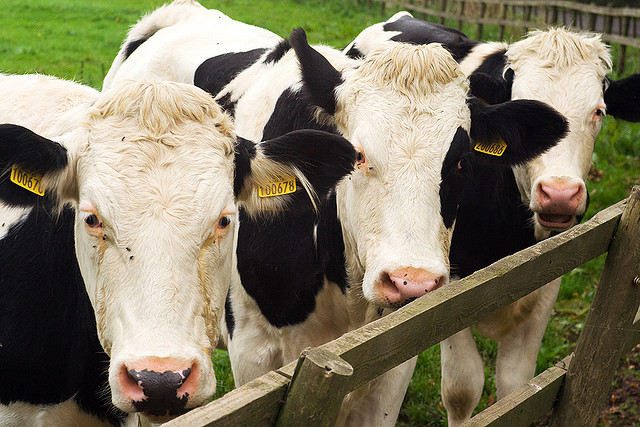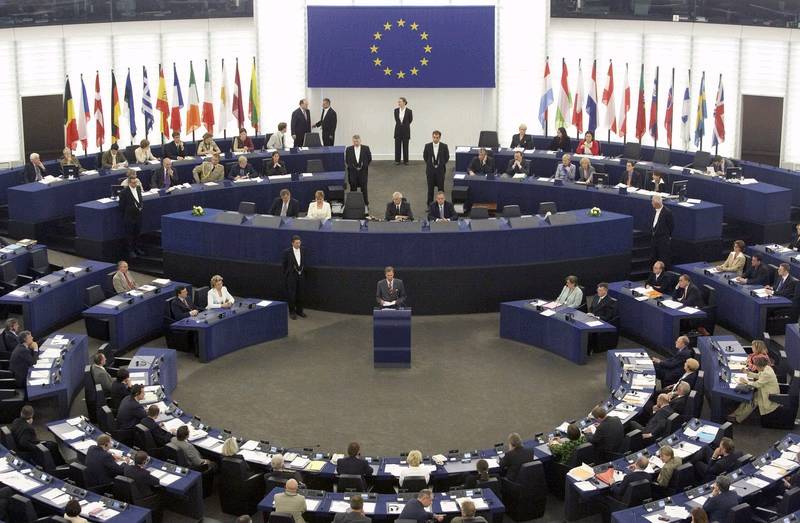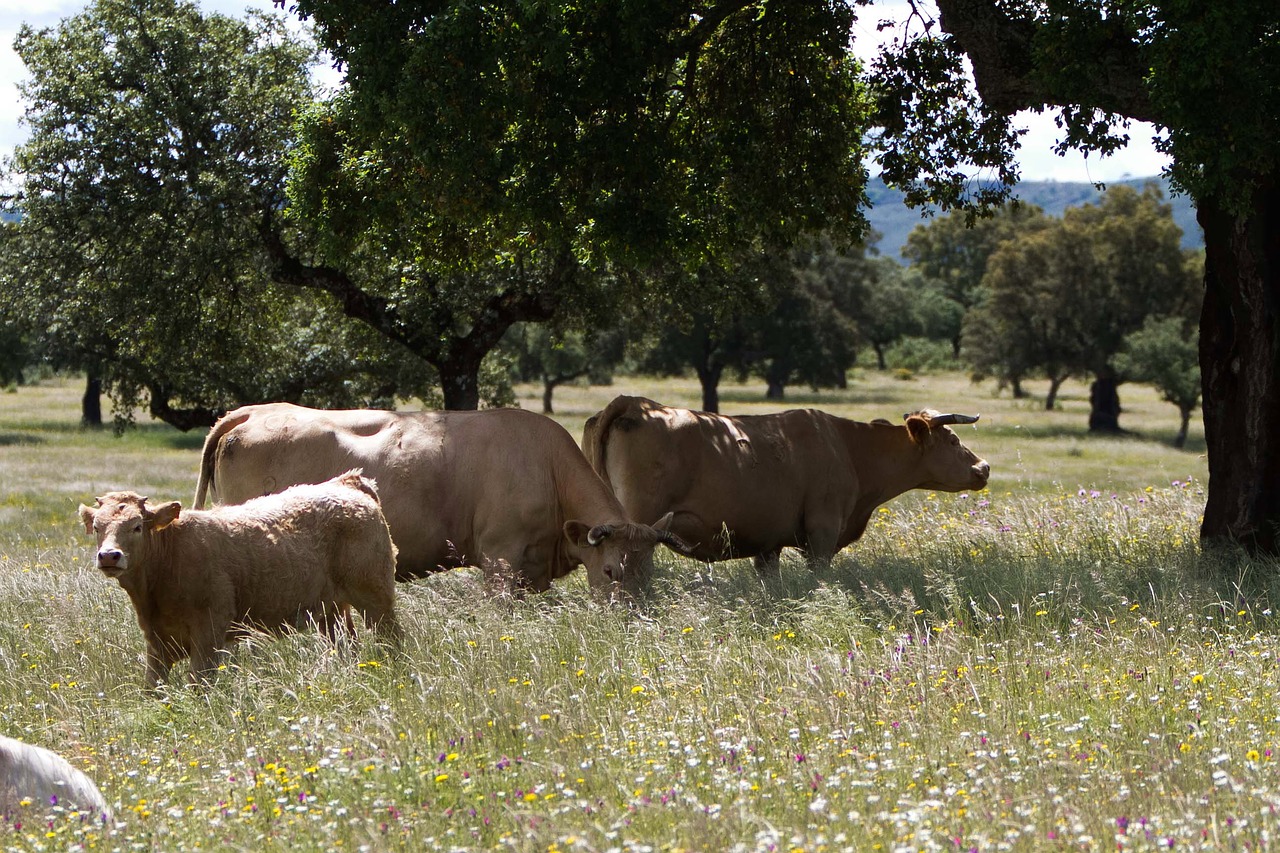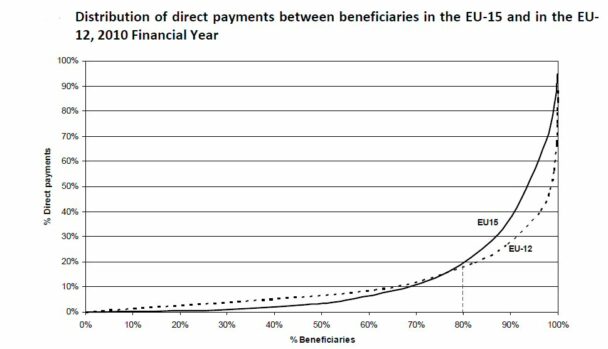As this was a relatively quiet week for news on CAP reform, I thought it might be useful to gather together in one place some references to the debate that has taken place on CAP greening since the publication of the Commission’s proposals in October 2011. This remains one of the knottiest issues to resolve in the CAP trilogues. These papers provide a guide to the general issues in this debate. There is also an emerging literature which attempts to estimate the impact for particular regions and farming systems of implementing the greening measures which I do not cover here. The papers are presented in rough chronological order and include a number of my own contributions so there is a certain amount of repetition.… Read the rest
MFF negotiations blown off course as European Parliament plays poker
Last week (Monday 22 April) the General Affairs Council (GAC) gave ‘guidance’ to the Irish Presidency for the negotiations with the European Parliament on concluding the MFF negotiations. The Irish Presidency’s objective is to reach agreement with the Parliament on the MFF by the end of June and to translate the overall MFF agreement into legal texts.
According to the conclusions of the meeting:
… Read the restMinisters supported the presidency’s efforts to find a compromise with the European Parliament on the next MFF in a timely manner. Ministers expressed their willingness to discuss the four key elements of the European Parliament’s resolution (flexibility, revision, own resources and unity of the budget).
What farmers should do to qualify for the new CAP green payment
This post originally appeared on the Environment Nexus website.
The trilogue process between the Council, the Parliament and the Commission on the new CAP regulations has now started. Over thirty meetings are scheduled to take place between now and end-June with a view to reaching a political agreement on the four main CAP regulations proposed by the Commission (direct payments, rural development, the single CMO, and the horizontal regulation).
The proposed greening of Pillar 1 payments is one of the key elements in the direct payments regulation. In their responses to the Commission’s proposal both the Council and the Parliament have moved to dilute considerably the impact of the three greening measures proposed by the Commission.… Read the rest
CAP reform uncertainty and the market for entitlements
One little-emphasised feature of the current negotiations on CAP reform is that the rules for eligibility for payments under the new basic payment scheme (and thus also the other proposed layers of Pillar 1 direct payments such as the green payment, young farmer’s payment, area of natural constraints payment and redistributive payment where these are adopted) are in a state of flux. New amendments and modifications continue to be introduced at successive stages of the negotiation process. This uncertainty is reflected in the market for Single Farm Payment (SFP) entitlements and the prices farmers are willing to pay for entitlements where they become available.… Read the rest
Impact of CAP subsidies on productivity
I recently had an exchange on Twitter with Martin Crowe, an Irish dairy farmer and agri-consultant, over the apparent stagnation in Irish agricultural output over the past 20 years (follow on @xAlan_Matthews and @martincrowe). I attributed this, in part, to the role that direct payments play in Irish farm incomes. I argued that “If 70% of your income is coming as a cheque in post there is less incentive to innovate to grow the remaining 30%” (direct payments make up around 70% of Irish farm income in an average year). Martin tweeted back that the “70% gives the security and confidence to try and improve the 30%”.… Read the rest
How MEPs voted on CAP reform
The website VoteWatch Europe monitors the voting of MEPs on each resolution and piece of legislation. It published the following commentary on the CAP reform voting earlier this month (thanks to Xavier Pavard @xpavard on Twitter for drawing attention to this source) which I reproduce here.
(Note: Right click on the images below and select Show picture to get clearer view of the graphics)
… Read the restCentre-right wins battle over CAP reform; net contributor country MEPs outvoted
MEPs voted on a package of four legislative proposals that make up the reform of the Common Agricultural Policy (CAP). The subject was hotly debated, as CAP currently accounts for close to 40% of the EU budget.
Evolution of the direct payments regulation
In January I prepared a spreadsheet setting out the amendments to the Commission’s proposed direct payments regulation which took account of the COMAGRI rapporteur’s amendments May 2012, the Council’s position as summarised in the Cyprus Presidency document December 2012 and the COMAGRI compromise amendments Jan 2013.
Some readers found this useful so I have now updated the spreadsheet to take account of the COMAGRI proposal for a negotiating mandate in February 2013 (that is, after COMAGRI voted on the compromise and other amendments), the mandate following the European Parliament plenary vote in March 2013, and the successive versions of the regulation prepared by the Irish Presidency for the March 2013 Agricultural Council meeting.… Read the rest
Are we really moving forward?
The debate on the future of the CAP has recently moved on with two important steps – the European Parliament plenary vote and the European Council agreement. Just to take up the story, the European Parliament Plenary voted in Strasbourg on 13 March on the over 330 amendments COMAGRI made this year to the European Commission’s official communication on the CP reform in October 2011. This was the first time in history when the Parliament could use her co-decision powers, affecting European Council decisions. This all happened, of course, after the deal reached on long-term budget on February 8, the consequences of which are well summarised in the interview with Paolo de Castro, Chair of COMAGRI at the European Parliament (see the video made by Vi(eu)ws here).… Read the rest
Implications of the new redistributive payment
Ever since direct payments were introduced into the CAP, their unequal distribution has attracted unfavourable attention. The Commission’s 1991 paper The Development and Future of the CAP criticised the distribution of price support, noting that “80% of the support provided by FEOGA is devoted to 20% of farms which account also for the greater part of the land used in agriculture”. Yet the proportions remain exactly the same in both the EU-15 and EU-12 today, according to the Commission’s latest figures for the claim year 2009 (financial year 2010) (see diagram).
Even for those who argue that the specific nature of farming justifies a permanent system of direct payments support, the unequal distribution of support is hard to justify.… Read the rest
The biodiversity consequences of killing Ecological Focus Areas
After the December 2012 Council proposed amendments, the vote of the agricultural committee of the European Parliament (COMAGRI) on January 24 2013 de facto kills any hope of deriving serious biodiversity benefit from the CAP reform. The COMAGRI amendments are particularly fatal to the Ecological Focus Area (EFA) measure, which is now nearly ‘as dead as a dodo’. The fact that the COMAGRI amendments largely restate the Agricultural Council’s draft position on the EFA leaves little hope for future debates between the Parliament and the Council. The conclusions of the European Council on February 8, 2013 can be seen as the burial of the EFA.… Read the rest









